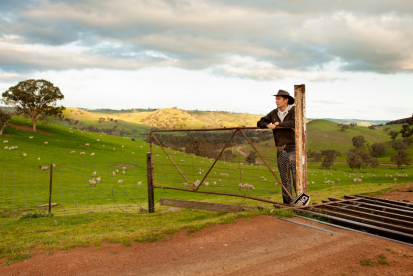2021 was a record-breaking year with unmatched high production and output, with most farmers raking in more revenue than expected across Australia. More revenue means more investment options, whether in new technologies, buying new machinery or expanding by purchasing more farm land.
These days it seems the market is not behaving in any sort of rational way. Especially with low-interest rates, every John and Mary you know is either selling, purchasing or leasing out their farmland at exceptionally high prices. If you are as baffled as everyone to understand current land prices, Ian Donaldson, Manager of the Real Estate Appraisal Team at Rabobank, is here to explain.
In this blog, Ian will discuss the reasons behind the increase in land and lease prices, whether this is positive for your farming business and the possible actions you can take to seize the opportunity.
With the current market situation, expect the unexpected
It's being observed that factors such as strong production years, high commodity prices, and record low-interest rates have exponentially increased farmers' purchasing power.
According to Rabobank's Agricultural Land Price Outlook report, farmers purchasing intentions are at the highest point in at least the past five years, with 9% of Australian farmers reporting that they intend to buy land within 12 months.
"The common theme now is that every single transaction that comes up tends to be higher than the last."
You might think the particular land will not sell at the price that's been put on the market or that the land is not worth the perceived value due to production basis. Now, according to the local market and trends, that might be true, but depending on the area the buyer is originally from, especially if purchased by a corporate entity, they might think the price is a bargain.
"What a local farmer deems expensive might seem cheap if you are coming from another area where you are paying significantly higher for what might be similar production levels. We are seeing that now with the large number of out-of-area buyers buying in certain locations."
Another reason for the increase in land prices is the lack of supply. As the report stated, 45% fewer sales were recorded in 2020 compared to 2019.
The lack of supply also presents an opportunity in itself
Particularly for those with significant farmland but are no longer interested in farming operations. Everyone will retire eventually, and your farmland can serve as a superfund to fund your retirement lifestyle.
"With the continuous growth, the lease rates are pretty handy to generate some cash flow, so we are seeing the root they are retaining the land because of that underlying capital growth."
For those in the market to expand their farming operations but are also not capable of buying a farm outright, leasing becomes an ideal solution. If you are in this situation and wondering what the banks are looking for to get your lease loans approved, Ian explained,
"We look at some of the production or property information to get some confidence and focus more on the capacity of the business to generate profit. Sometimes it also depends on the individuals and the business model itself; not necessarily the big tractors or the big acres, but the person behind the business."
With the lack of supply, the fear of missing out (FOMO) is real among farmers
With land prices soaring through the roof, you might think it's a good time to sell or purchase more farmland. Now, just because John and Mary have sold their land at exceptional prices to some corporate or long-term farmer, this does not mean your opportunity to find a buyer or leaser is fading.
"FOMO is prompting buyers to enter an EOI (expression of interest) for purchase at much higher than the productive value to secure the property, not knowing when another opportunity may arise."
Every sale and every lease is different, and the talks you hear at the pub should not influence you to make a rushed decision. Pub talk is not the same as having actual market intelligence. Your own research and your due diligence must be done before jumping into a decision. Explore the numbers and reports published by a trusted source and use that information to analyse and understand the market value within your areas. The more you know, the better position you will be in to make a decision.
"Deal with the real numbers and not the pub talk. It's really quite important, and I can't stress that enough."
The market is constantly changing. So do your research, don't panic and have flexibility with your farm business to seek inter-regional purchases as the demand/supply balance is not the same in all regions.
For more insights and tips, listen to episode 7 of the Boots Off Log On! podcast here.
Listen to other Rabobank related interview - Episode 23: The economic and agricultural outlook for 2023 with Stefan Vogel.




